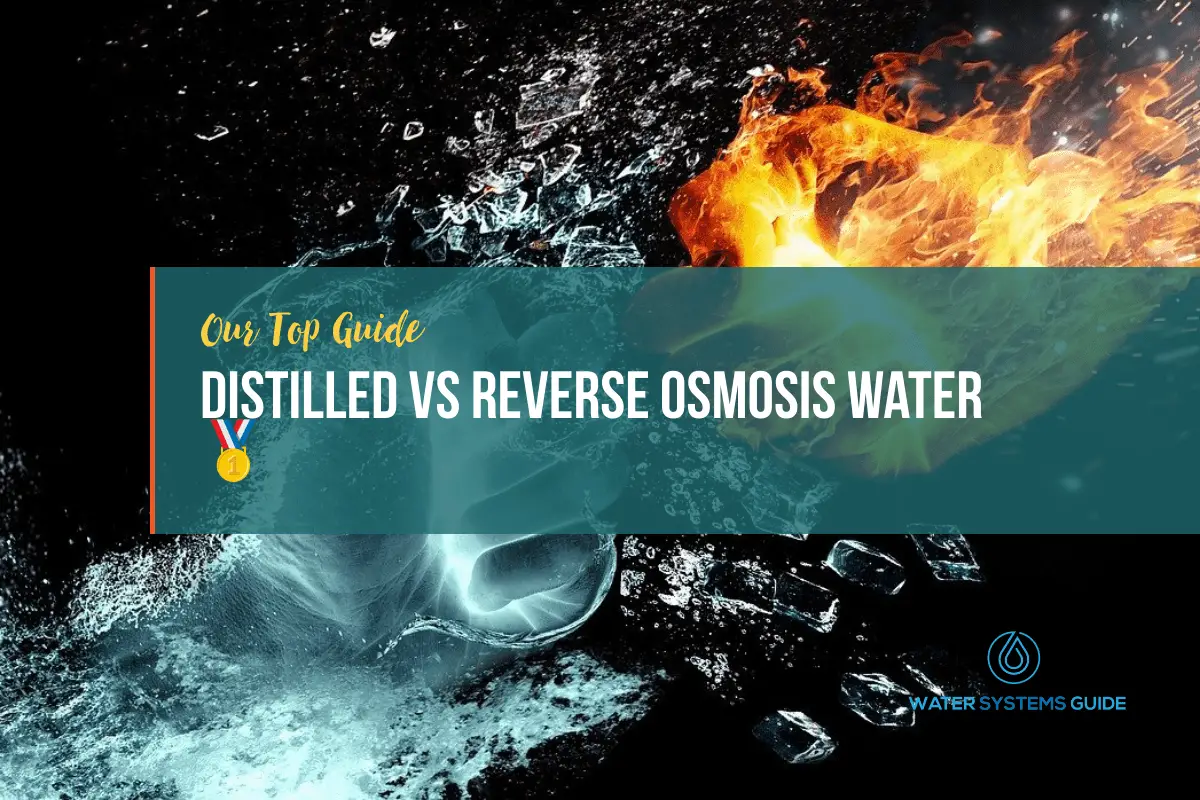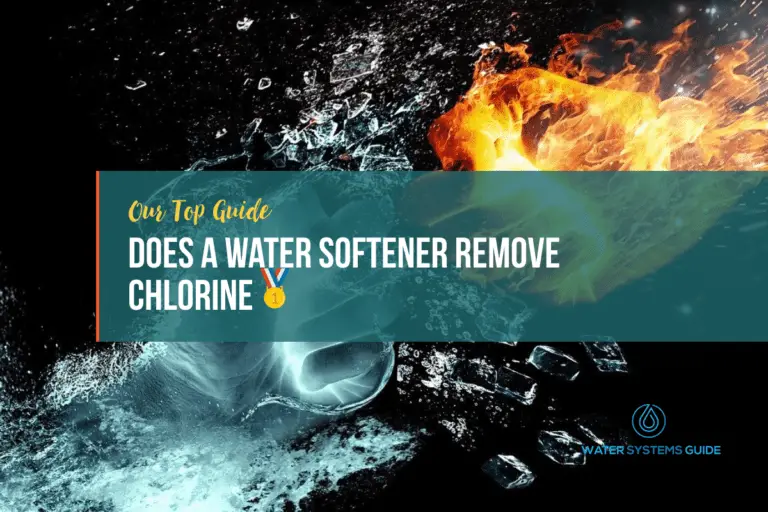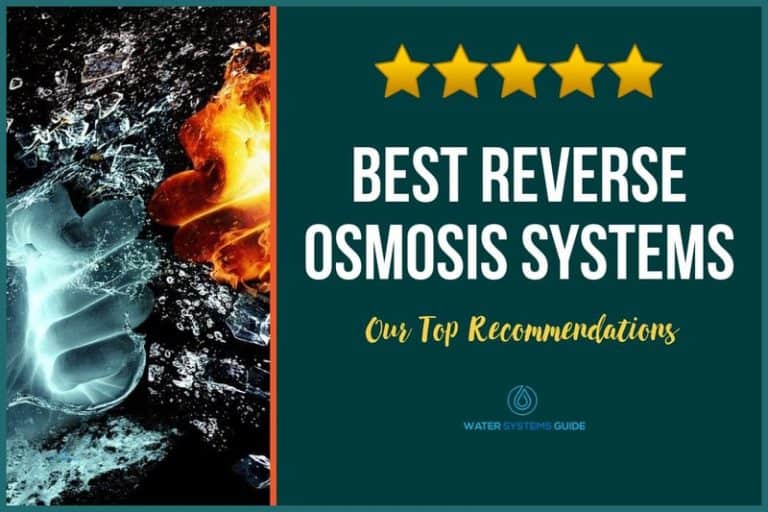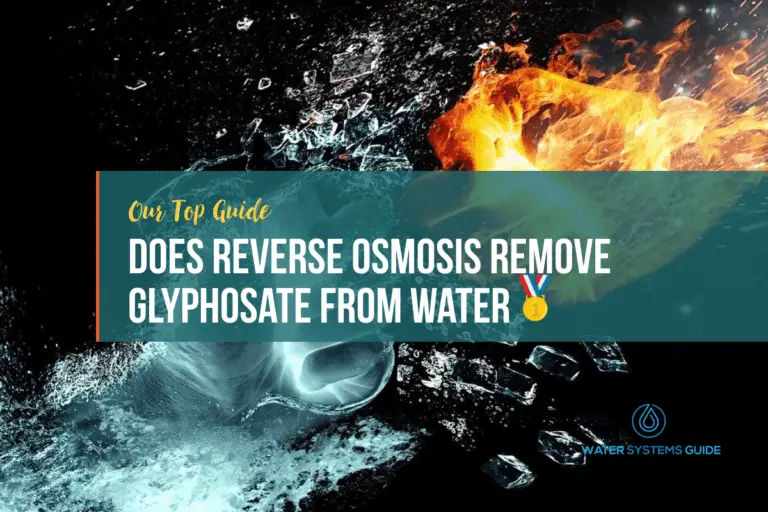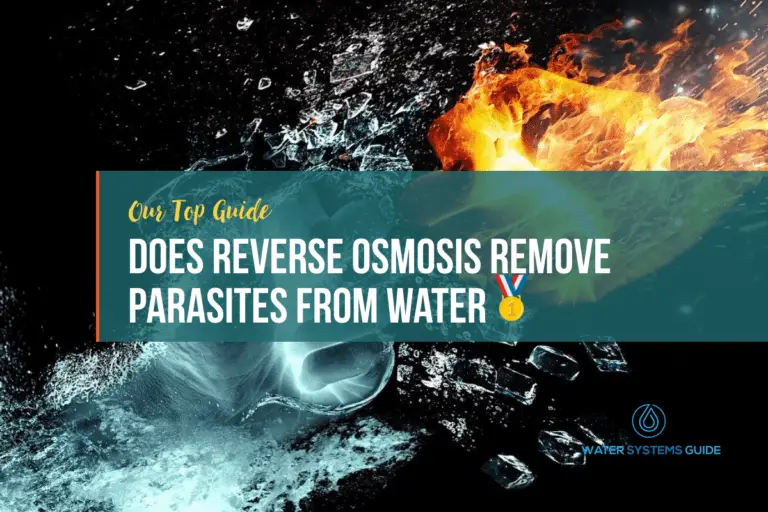Distilled Vs Reverse Osmosis Water
In this article we’re going to be discussing and comparing the differences between distilled water and reverse osmosis water.
We understand that each reader will have a different requirement for the water, with some requiring clean drinking water, and others just looking to purify water for washing/cleaning, etc.
So without further ado, let’s get into it!
What’s the difference between distilled and reverse osmosis water?
There are a few key differences between distilled and reverse osmosis water treatment.
Distilled water is made by boiling water and then condensing the steam back into pure water, which leaves behind any impurities.
Reverse osmosis water goes through a process where it’s forced through a semipermeable ro membrane, which removes impurities. This is done through the use of a reverse osmosis system. Because of this, distilled water is often more pure than reverse osmosis water. However, reverse osmosis water typically has a better taste since it retains more minerals.
Reverse Osmosis vs Distilled water, which is best?
Reverse osmosis and distilled water are both great options when it comes to choosing the best water for you. They both have their own benefits that make them stand out from other types of water.
Reverse osmosis water is filtered through a process that removes impurities and contaminants, leaving you with clean, fresh-tasting drinking water. It’s a great option if you’re concerned about the quality of your tap water. However, the debate is still being had as to whether RO water is healthy for long-term consumption.
Distilled water is also free of impurities and contaminants due to the water distillation process, but it goes one step further by also removing minerals and other dissolved solids. This makes it ideal for people with certain medical conditions, such as kidney problems, who need to avoid these substances.
However, we highly advise doing more research and even speaking with a medical professional if you’re considering consuming either sources of water. For example, there are studies showing that the evidence is not quite conclusive on whether consuming RO water is good or bad for the body.
Benefits of Reverse Osmosis For Home Use
Reverse osmosis is a water purification technology that is used to remove contaminants from water. The process works by forcing water through a semipermeable membrane, which allows only clean water to pass through and traps contaminants on the other side. With recent technological developments, new RO systems are able to do this extremely efficiently.
Reverse osmosis is an effective way to remove contaminants from your home water supply, making it safe to drink. In addition, reverse osmosis can also be used to improve the taste of water by removing impurities that can cause it to taste bad. Reverse osmosis is an affordable water purification option for home use and can be used to purify both tap water and well water.
A reverse osmosis filtration system also removes salt from seawater, making it possible to produce fresh water from ocean water. In addition, reverse osmosis can be used to concentrate dissolved solids in a solution, making it possible to recover valuable materials from wastewater.
Benefits of Distilled Water for Home Use
There are many benefits of using a water distiller to get distilled water for home use.
Firstly, it’s great for cleaning because it doesn’t contain any minerals or impurities that can leave behind spots or streaks. It’s also perfect for filling vases and watering plants because it won’t affect the taste of your flowers or the health of your plants. Additionally, distilled water is excellent for ironing because it doesn’t leave any mineral deposits on your clothes. Finally, distilled water is a great choice for drinking because it’s free of contaminants and chemicals.
Distilled water vs Deionized water
There are two main types of water used in industry and science laboratories: distilled water and deionized water. Both types of water are purified, but the methods used to purify them are different.
Distilled water is made by boiling water and then condensing the steam back into a liquid. This process removes impurities from the water, including dissolved minerals. Deionized water is made by running water through a series of filters that remove ions, such as magnesium and calcium.
Which type of water you use will depend on your needs. Distilled water is typically used in chemical reactions because it doesn’t contain any minerals that could interfere with the reaction. Deionized water is often used in experiments where dissolved minerals could affect the results.

